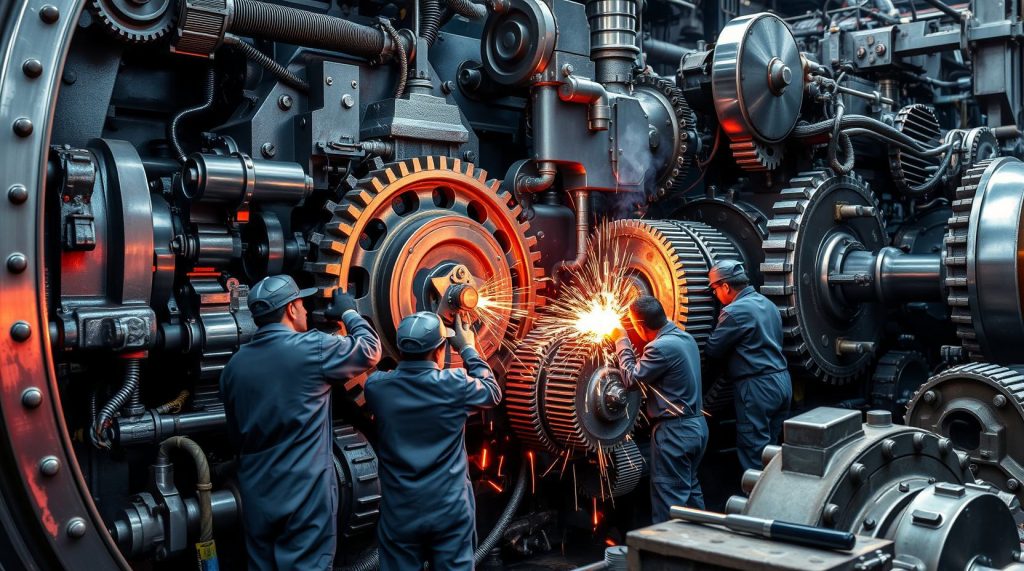How to Extend the Life of Your HVAC Equipment Through Regular Maintenance
ArticleHVAC systems are essential for maintaining comfortable indoor temperatures, but their effectiveness and longevity depend on consistent maintenance. Regular upkeep can extend the life of your equipment, reduce costly repairs, and improve energy efficiency. This guide covers essential HVAC equipment maintenance tips, preventative care, and troubleshooting advice to help you get the most from your HVAC system.
HVAC Equipment Maintenance Tips
Regular maintenance is the key to keeping your HVAC system running smoothly. Change air filters every 1-3 months to prevent dust and debris from clogging the system, which can cause it to overwork and fail prematurely. Schedule annual professional inspections to check for wear, clean components, and ensure everything is operating efficiently. Cleaning vents and inspecting ducts for leaks or blockages are simple tasks that can greatly enhance performance and help your system last longer.
Common HVAC Repair Problems
Some HVAC issues are more common than others, and recognizing them early can save you from costly repairs. Common problems include refrigerant leaks, faulty thermostats, and clogged filters. These issues reduce efficiency, strain the system, and can lead to larger malfunctions if not addressed promptly. Regularly inspecting these components as part of a maintenance routine can prevent minor problems from escalating into major repairs.
Best Practices for HVAC Upkeep
Best practices for HVAC upkeep include routine filter changes, cleaning condenser coils, and keeping outdoor units free of debris. Check the thermostat’s battery regularly, as a weak or dead battery can disrupt the system. Additionally, keep vents unblocked by furniture or curtains to allow for efficient airflow. A well-maintained HVAC system is more energy-efficient, reduces utility costs, and operates more effectively year-round.
Signs Your HVAC Needs Repair
Recognizing the signs that your HVAC needs repair can help you avoid unexpected breakdowns. Common indicators include unusual noises, inconsistent temperatures, or a sudden spike in energy bills. If you notice weak airflow, strange odors, or the system cycling on and off frequently, it may be time to call a technician. Addressing these issues promptly can prevent further damage and extend the lifespan of your equipment.
HVAC Preventative Maintenance
Preventative maintenance involves routine tasks that keep your HVAC system in optimal condition. Key tasks include cleaning the condenser and evaporator coils, lubricating moving parts, and checking refrigerant levels. Regular maintenance can prevent system failures and improve energy efficiency, making your HVAC equipment more cost-effective in the long run. Scheduling seasonal check-ups before peak heating or cooling seasons is an effective way to keep your system ready for heavy use.
Troubleshooting HVAC System Issues
Basic troubleshooting can resolve some HVAC system issues without the need for professional intervention. If the system isn’t working, check the thermostat settings and power source. For issues with airflow, inspect the air filter, and replace it if it’s clogged. If the system is cycling frequently, check for blocked vents or ductwork issues. While these steps can solve minor problems, it’s essential to contact a professional for complex issues or persistent malfunctions.

Repairing vs. Replacing HVAC Units
When HVAC units begin to show signs of age, it can be challenging to decide whether to repair or replace them. As a rule of thumb, if repair costs exceed 50% of the price of a new unit, replacement may be more cost-effective. Consider the age of the unit, energy efficiency, and frequency of repairs. Newer models offer better efficiency, which can lead to savings on utility bills. A well-maintained HVAC system generally lasts 15-20 years, but replacement may be necessary sooner if repairs become too frequent or costly.
How to Clean HVAC Equipment
Cleaning your HVAC equipment is a crucial part of maintenance. Start by shutting off the power, then remove and clean the air filter or replace it with a new one. Use a soft brush to clean dust from the evaporator and condenser coils, as buildup can hinder performance. Clear debris from around the outdoor unit to maintain proper airflow. Regular cleaning of these components reduces strain on the system, improving efficiency and extending its life.
Common HVAC System Malfunctions
HVAC systems can experience various malfunctions, from electrical failures to airflow issues. A frequently cycling system often indicates thermostat problems or clogged filters, while uneven cooling or heating can point to ductwork leaks or blockages. Refrigerant leaks are also common and can reduce the system’s efficiency. Regular inspections allow you to catch these malfunctions early, reducing repair costs and preventing unexpected breakdowns.
HVAC Equipment Lifespan Tips
Extending the lifespan of your HVAC equipment involves both routine maintenance and mindful operation. Avoid running the system at extreme settings, which can cause it to overwork. Investing in a programmable thermostat helps regulate temperatures more efficiently, reducing strain on the system. Regular maintenance, such as cleaning and timely repairs, ensures each component operates smoothly, allowing your HVAC equipment to reach or exceed its expected lifespan.
In conclusion, proper HVAC maintenance is essential for keeping your system running efficiently and extending its lifespan. By following best practices, addressing repair needs promptly, and scheduling regular inspections, you can improve performance and avoid costly breakdowns. A well-maintained HVAC system provides reliable comfort while reducing energy consumption, making it a worthwhile investment for any property owner.
